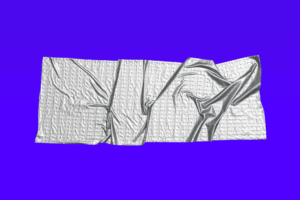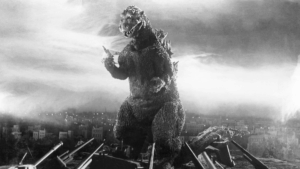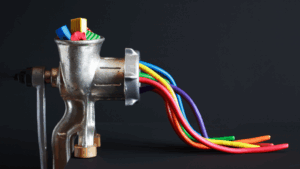Where’s the Dragon?
I bet you think you know what the dragon is, but you’ll be surprised.

Be the St. George you want to see in the world. Image via Wikimedia Commons.
I’ve spent much of my career demonstrating technology to people who are not excited about technology. For the most part, it goes a certain way: I’m excited, but they’re trying to slow me down, pointing out the flower beds as I trample through their garden. I’ve had this experience in a lot of different contexts—selling services, presenting ideas to groups, sharing code I wrote, or in showing cool digital tools to friends and getting a cold reception.
I once demonstrated how a modern OS works to a much older magazine editor who wanted to learn the basics, after putting it off for decades. We sat together at a Mac.
“You just click the icon,” I said, “and move the mouse to the folder…and let go of the mouse.” I paused so he could follow. “Now it’s in the folder. That’s called drag-and-drop.”
Want more of this?
The Aboard Newsletter from Paul Ford and Rich Ziade: Weekly insights, emerging trends, and tips on how to navigate the world of AI, software, and your career. Every week, totally free, right in your inbox.
“Okay,” he said, frowning and peering at the screen. “But where’s the dragon?”
I’ve been having two kinds of conversations lately: First, with people who believe everything is changing in tech and want to figure that out—call them “adaptors.” And second, with people who believe everything is changing and want to slow it down and control it—call them “mitigators.”
These terms are borrowed from the climate change community. In that context, “adaptation” means preparing for bad climate effects now—battening the hatches, metaphorically and literally. It’s something we’re helping with at Aboard. “Mitigation,” in contrast, means restructuring the entire economy and political system to be less dependent on fossil fuels.
It might sound odd to people outside the climate world, but for many within it, the word “adaptation” was understood as a cop-out (no pun intended). Mitigation people believe cutting emissions in order to stop global warming has to be the emphasis in strategy and policy, because adaptation is giving up. But as the world has warmed, it’s clear that we need to keep working towards “adaptation” and “resilience,” so that people can keep themselves and their families safe. (Here’s a good Bluesky list of adaptation people, for example.)
I think change is interesting—bad and good change alike. If there is a new, big thing, I want to understand it. I respect big institutions, but I love chaos. If I could have any job besides my own I would like to be Friar Paolo Benanti, who advises the Vatican on AI. His chosen puzzle is one of the most interesting on earth: How do you take a fundamentally conservative religion with 1.3 billion members that thinks in centuries and align it with a fundamentally agnostic technology that changes weekly? Or vice-versa?
I can’t get that job for a lot of reasons (married, and more importantly, not Catholic). So I work at a startup, and write about technology, and dabble a lot. But over time, I’ve come to realize two things: One, most of the world really would like things to slow down. And two, they’re not wrong.
This is already a wild year. The political climate is changing in unpredictable ways, the actual climate tipped above 1.5 degrees, and AI is either going to stall out or race ahead—but either way, the tech industry is going to change a ton as it metabolizes what’s happened.
Even as an adaptation-focused person, I’m overwhelmed. I’m getting used to being overwhelmed, but it takes time. I’m seeing a lot of denial—and anger—about what’s in the pipeline. Humans are not designed for this level of change. But, alas, in climate, politics, and technology, we seem to have collectively accepted that mitigation—big, concerted, structural change with everyone accounted for—is off the table. As a result we all need to adapt to change and basically hang on to see what’s next. When things change rapidly it’s very easy to feel that you’re severely behind. And I find that I keep asking myself, “Where’s the dragon?”
That dragon, to me, represents how much of technological change is about communication. New tools and database methods are great, but they’re useless if people can’t internalize them and employ them to their own ends. My older editor friend wasn’t being dense. I was just showing him something new. He’d never heard “Drag and drop” before. So he heard “Dragon drop,” which is far more interesting and much cooler.
I try to remember that half the time, while I’m excitedly rambling about some new thing in person or on the Internet, my audience is hearing something completely different—looking for the dragon. And it’s on me, the explainer, to keep checking in with them and seeing how much is getting through.
My friend did eventually upgrade—from a cassette recorder to a digital audio recorder. After dabbling with a computer on his desk and figuring out how to use the web, he realized that he could just keep paying his executive assistant to transcribe his voice memos and edit from there. That was the level of technology he could handle.


